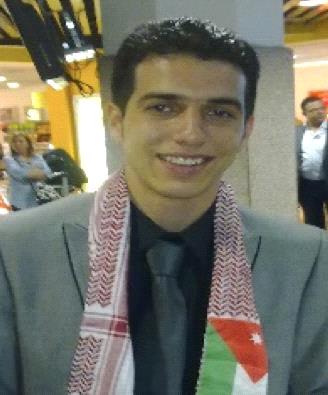-
Top Stories -
Most Popular
-
Zain introduces ‘The Masters’ initiative, empowering 30 individuals with disabilities
-
Infiltrator killed, 6 others arrested on Northern Military Zone
-
PM visits wounded security forces in Rabieh shooting attack
-
Public Security Directorate urges caution ahead of incoming weather front
-
PSD: Gunman in Rabieh had weapon, several incendiary materials
-
Momani: Shooting attack in Rabieh was carried out with automatic weapon
-
Local gold prices on Sunday
-
Eastern military zone thwarts infiltration attempt from Syria
-
Working hours of King Hussein Bridge amended
-
Shooting in Rabieh area is terrorist attack on security forces, gov't says
-
Moody’s affirms Jordan’s credit rating at Ba3
-
Utilizing AI. in Human Resources Management and Development in Leading Organizations
-
Cyberlaundering; How Social Media Influencers Fuel Financial Crime
-
1000 Days of Heroic Resistance: A Tribute to Ukraine’s Struggle
-
King, UAE President discuss bilateral ties, regional developments
-
King in Throne Speech: Jordan's future will not be subject to policies that do not serve its interests
-
Vehicle fire leads to heavy traffic jam in Airport road
-
Energy: Global oil prices drop
-
51,647 foreign students in Jordanian higher education institutions
-
U.S. Embassy’s Education USA Fair Honors 75 Years of U.S-Jordan Relations
- no comments
Notice
All comments are reviewed and posted only if approved.
Ammon News reserves the right to delete any comment at any time, and for any reason, and will not publish any comment containing offense or deviating from the subject at hand, or to include the names of any personalities or to stir up sectarian, sectarian or racial strife, hoping to adhere to a high level of the comments as they express The extent of the progress and culture of Ammon News' visitors, noting that the comments are expressed only by the owners.
Ammon News reserves the right to delete any comment at any time, and for any reason, and will not publish any comment containing offense or deviating from the subject at hand, or to include the names of any personalities or to stir up sectarian, sectarian or racial strife, hoping to adhere to a high level of the comments as they express The extent of the progress and culture of Ammon News' visitors, noting that the comments are expressed only by the owners.
| name : * | |
| comment : * | |








 comment replay
comment replay 